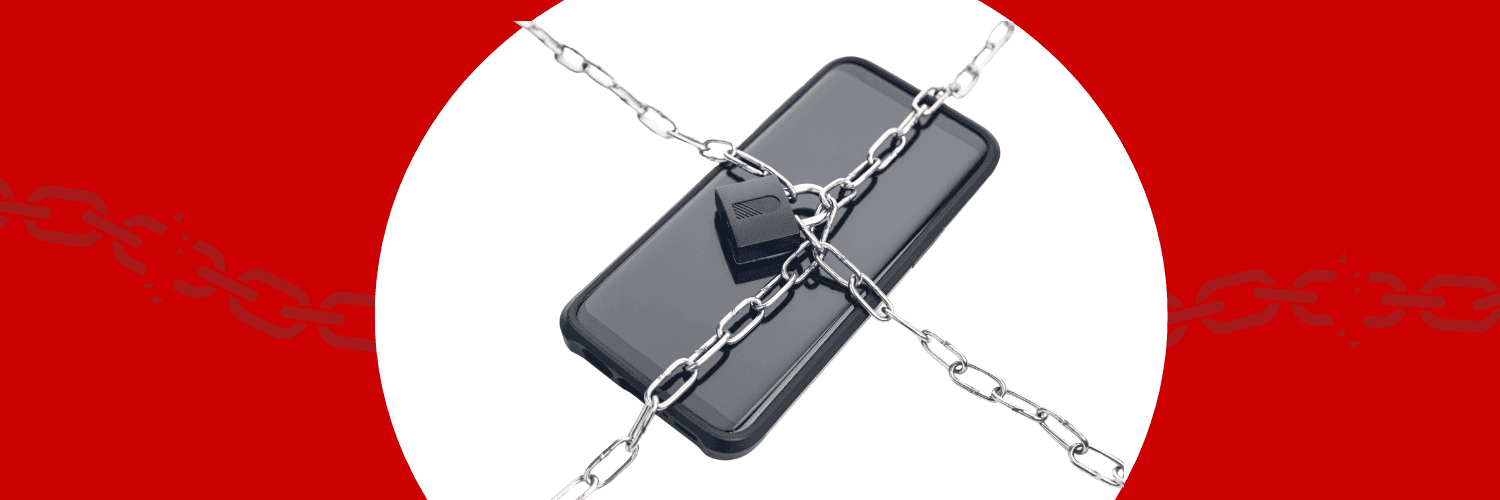Once upon a time, a Viking's window 🪟 to the world was a wooden ship, and today it's a smartphone. In both cases, you mustn't let anyone board! The last thing we need is someone snooping around your phone! In this short post, we'll explain how to secure access to your camera, and recognize suspicious apps and malware.
How Can You Become a Hacker's Victim?
Your phone can be a carrier of sensitive data, a payment device, a repository of memories, and valuable information. Therefore, it's a tempting target for many scoundrels who are just waiting to get their hands on your resources:
- Never leave your phone unattended in a public place. Clubs, restaurants, concerts – a moment of inattention and it's practically gone.
- For safety, try to avoid connecting to public Wi-Fi networks. A hacker can use them to transfer unwanted software to your mobile device.
- Install programs and apps only from trusted sources.
- Just like with strange emails, you shouldn't click on unknown apps or links sent to you via email or SMS on your phone either. SMS messages can miraculously impersonate courier notifications or standard payment reminders. A rush or a moment of inattention and it's over... your account balance, for example. So, be vigilant, like a double watchdog 🐶!
What Are the Symptoms of a Hacked Phone?
Of course, it's not like a phone attacked by hacker scoundrels starts coughing or has a fever. Unfortunately, this ailment doesn't have easily recognizable symptoms. However, typically, a consequence of a infected or hacked device is slower performance, faster overheating, and more frequent battery charging than usual.
You might consider suspicious messages that arrive frequently, or apps installed without you knowing when, to be worrying. Your device might also turn off – out of the blue. If you've encountered even one of these symptoms, then... consult a doctor or pharmacist, because it's quite possible your phone has been hacked. But seriously, just keep reading, because we're explaining how to get rid of this deceit!
How to Remove Malware?
How to check if your phone has been hacked and how to act after diagnosis? If you suspect your phone has fallen victim to the nefarious actions of third parties, then download an antivirus program from a trusted source to scan ✅ your phone's content and eliminate suspicious apps, installation files, and other dubious resources.
Which antivirus program to choose for Android? Avira Security Antivirus, Avast Antivirus, or Biodefender Antivirus would be helpful, for example. You can download all of them from reliable sources and perform a basic scan for free. However, it's a good idea to purchase the paid versions and treat it like insurance. A smartphone is like Lithuania – only he who loses it will know how much it's worth 🙃.
In addition to scanning, it's also worth uninstalling apps that could have (with a high degree of probability bordering on certainty) initiated problems with your phone.
You absolutely must change all passwords you've used to log into your mobile device. Changing your password is also crucial for prevention and protecting yourself from the potential devastating consequences of an attack on your phone.
Check out: Rules for Safe Internet Usage
How to Protect Your Phone from Spying and Hacking?
The most important thing is to maintain hygiene when using your phone. This doesn't mean washing your hands before every touch of your smartphone (although a good scrub after use certainly won't hurt), but rather being cautious and not clicking on suspicious apps and links that might carry malware. Programs should only be downloaded from reliable sources, and the use of public Wi-Fi networks should be minimized or protective techniques should be employed.
This free Wi-Fi can indeed be tricky. It's worth connecting to a free network only when you know it and disabling the automatic connection of your smartphone to public internet networks to gain control over when it happens. Let's not fall victim to Scottish thrift and use prepaid mobile internet in uncertain locations.
An important matter – VPN! This is a Virtual Private Network, a solution that encrypts your phone's data. You can find many free VPN apps online (including those included with the aforementioned antivirus programs) and use them successfully on both desktop and mobile devices. This solution will provide you with secure Wi-Fi in public places.
An important issue is creating backups so you can always restore to factory settings enriched with the valuable data you store on your phone. In this way, infecting your phone with a virus or spyware won't have such severe consequences.
How else can you protect yourself from hacking? Use two-factor authentication. Verifying for online banking, for example, via SMS code, or logging into various apps with an additional confirmation, e.g., from Google Authenticator, will better protect your key data and resources.
The most important thing last – your passwords must be as strong as a Viking's arm 💪! A strong password is a long password, containing a combination of letters, numbers, and special characters, and devoid of distinctive dates, such as your birth year. Even if you're not a local celebrity, half your neighbors know how old you are 😂.










